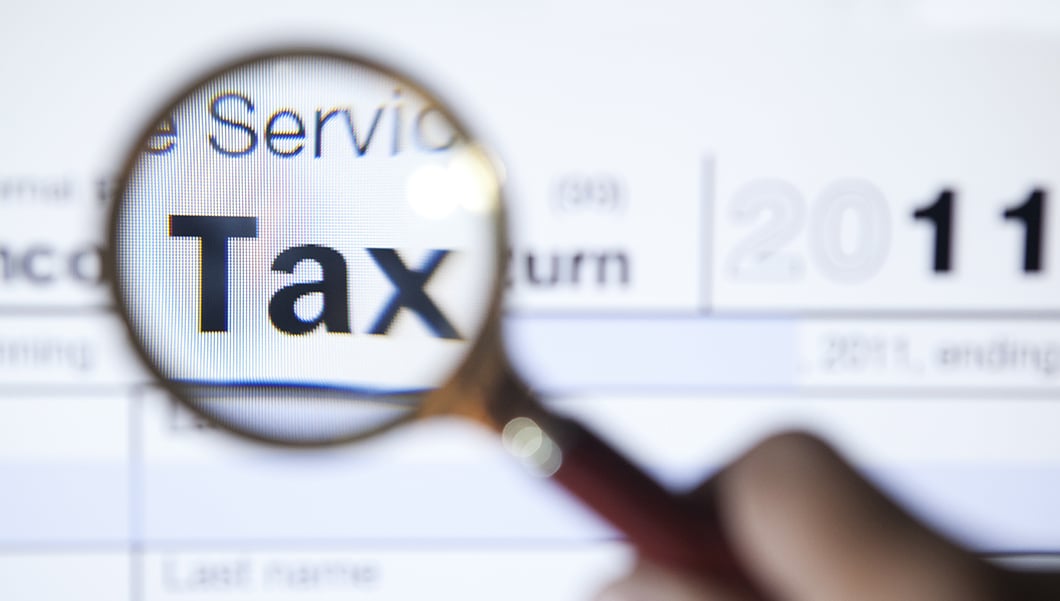
Tax E-News January 2016
7.5% INCREASE IN INCOME TAX ON DIVIDENDS TO PROCEED
The legislation to introduce the new system of dividend taxation announced in the Summer Budget has now been included in the draft Finance Bill. Although individuals will be able to receive £5,000 of dividend income tax free each year from 2016/17, once that has been used up there will be an effective 7.5% increase in the rate of tax on dividends so you may wish to consider the timing of your dividend payments before 6 April 2016.
If you would like to understand how the new dividend tax rules will affect you and any action that should be taken, please get in touch with us.
LIQUIDATIONS AND OTHER CAPITAL PAYMENTS MAY BE SUBJECT TO INCOME TAX
One of the anti-avoidance measures announced in the Autumn Statement on 25 November was to introduce legislation to counter the distribution of income accumulated in a company to the shareholders in a capital form, potentially subject to the 10% capital gains tax rate with the benefit of entrepreneurs’ relief. This is a much lower rate than the rate of income tax on dividend payments, particularly when the new higher dividend tax rates are introduced in 2016/17.
The anti-avoidance legislation is now included in the draft clauses to be included in Finance Bill 2016 and, if enacted, will apply from 6 April 2016. The proposed changes appear to go much further than we originally thought and potentially catch schemes of capital reduction and even certain situations where a company buys back shares from a shareholder. It is hoped that the changes will not apply to genuine commercial transactions.
If you are considering closing your company down and distributing the retained profits it may be advantageous to do so before 6 April 2016. If so, you should contact us as soon as possible so that the transaction can be completed before the new rules take effect.
EXEMPTION FOR TRIVIAL BENEFITS IN KIND
The Office of Tax Simplification has made a number of recommendations to the government to simplify the tax rules for reporting benefits in kind and expenses paid on behalf of directors and employees.
One recommendation was to replace a number of extra statutory concessions and legislate that trivial benefits in kind, where the cost to the employer is no more than £50, will not need to be reported in future and will be exempt from tax. HM Revenue and Customs raised concerns that some directors of family companies might abuse the new rules and have insisted that the exemption should be limited to £300 per annum in the case of directors and family members of such companies and this has now been included in the draft Finance Bill to be introduced from 6 April 2016.
The exemption is expected to cover the provision of small gifts to employees and former employees such as flowers on the occasion of a wedding or funeral and should not be in recognition of particular services performed by the employee in the course of their employment.
Please get in touch with us for further guidance on which benefits will qualify for this new exemption.
PROPOSAL TO RESTRICT TAX RELIEF FOR TRAVEL EXPENSES FOR IR35 WORKERS
One of the controversial measures included in the draft Finance Bill 2016 was the proposed restriction of the deduction for travel and subsistence expenses incurred by certain workers caught by the IR35 rules. This proposed change was consulted on during summer 2015 and, if enacted, will significantly restrict the tax relief available for those affected.
The original proposals have been toned down to a certain extent and will only apply if the IR35 rules apply to the engagement and there is supervision, direction and control (SDC) over the worker. This now seems to be the key test to determine whether the new rules will apply and ignores the other employment status factors. The examples in the consultation document seem to suggest that if there is no expertise within the end user organisation then there is likely to be limited SDC and the worker will be entitled to relief for travelling to the client’s premises.
Any tax debt arising from the deliberate misapplication of the rules is to be transferred ‘jointly and severally’ from the ‘intermediary company’ to its director(s). It would appear that the ‘engager’ will not now be liable, which was one of the proposals in the consultation. It is intended that these rules will be implemented where it can be shown that the ‘intermediary’ had knowingly failed to apply the rules correctly.
Please get in touch with us if these new rules are likely to have an impact on your business.
RENEWALS BASIS IS BACK FOR BUY TO LET LANDLORDS
Following the restriction of tax relief for mortgage interest and the 3% increase in Stamp Duty Land Tax all is not doom and gloom for buy to let landlords. Following on from the consultation last summer the draft Finance Bill 2016 includes the legislation to reintroduce tax relief for the replacement of furnishings in buy to let properties from 6 April 2016.
This will apply to both furnished and unfurnished lettings and will mean that the cost of replacing items such as cookers and washing machines will again qualify for relief following the withdrawal of a concession from 6 April 2013.
Note that the alternative, and simpler, 10% wear and tear allowance will be withdrawn from 6 April 2016 for those letting properties fully furnished.
Those letting properties under the more stringent furnished holiday letting rules will continue to be able to claim the Annual Investment Allowance which provides 100% tax relief for the initial furnishing as well as renewal of furniture in holiday properties.
TAX DIARY OF MAIN EVENTS
| Date | What’s Due |
| 1 January | Corporation tax for year to 31/3/15 |
| 19 January | PAYE & NIC deductions, and CIS return and tax, for month to 5/1/16 (due 22 January if you pay electronically) |
| 31 January | Deadline to file 2015 SA tax return online |
| 31 January | Income tax balancing payment for 2014/15, plus CGT for 2014/15 |
| 31 January | Income tax 1st payment on account for 2015/16 |
| 1 February | Corporation tax for year to 30/4/15 |
| 19 February | PAYE & NIC deductions, and CIS return and tax, for month to 5/2/16 (due 22 February if you pay electronically) |
Guide to selling your business
Your simple guide to helping you maximise the value in your business.
Sign up to receive alerts
Call us on 01628 770 770 for a no-obligation chat
You may also be interested in...
New Companies House filing requirements under the Economic Crime and Corporate Transparency Act (ECCTA) 2023.
What’s happening? The ECCTA received Royal Assent in October 2023 and gives more powers to Companies House to play a more significant role in tackling economic crime and supporting economic growth. Introduction of new laws under the ECCTA will be…
Companies House Filing Fee Increases from May 2024
From Wednesday 1st May 2024 the revised Companies House filing fees will come into effect. The change comes following The Economic Crime and Corporate Transparency Act 2023 which allows Companies House increased powers to ensure accuracy, verify the…
April 2024 – Tax News
Happy new tax year In this April issue we highlight some of the key tax changes that take effect from the start of the new tax year. Unfortunately, most of the income tax and national insurance thresholds continue to be frozen, resulting in an…



